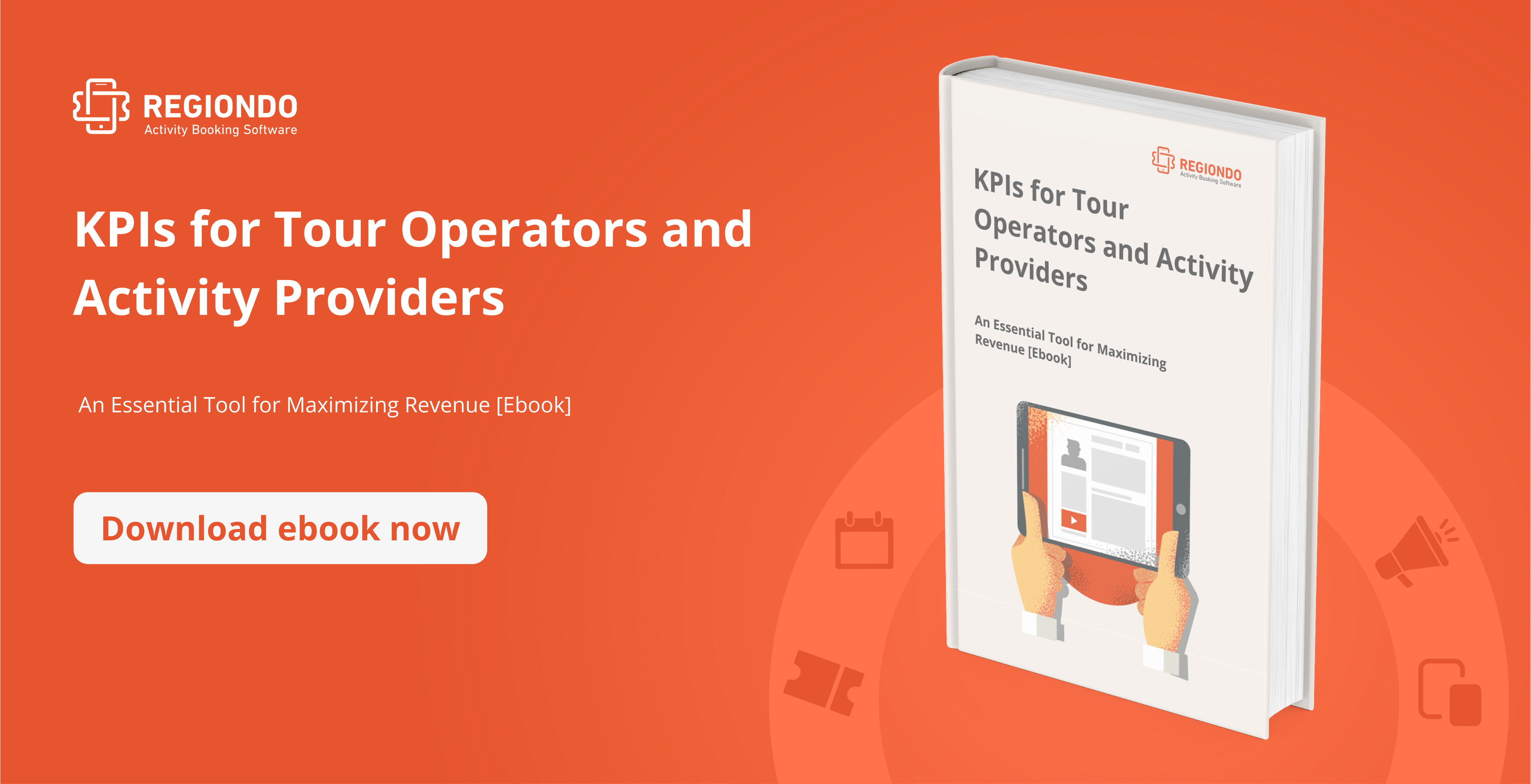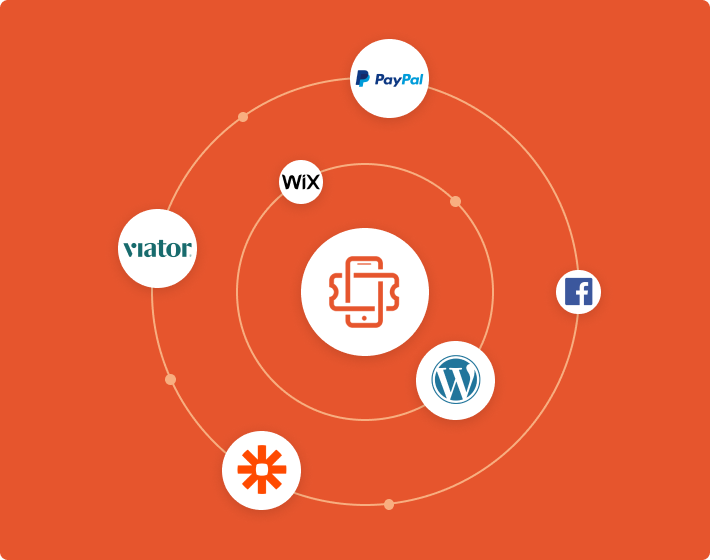In the travel industry, where customer service is as important as the experience you provide your guests, effective people management is the cornerstone of success. Your employees are the gears that keep your business running smoothly; they are the face of your brand and often the difference between a glowing review and a negative one. For these reasons, you need to make sure that those gears are well-oiled, that each team member is performing at their most productive, and that the collective goals of customer satisfaction and business growth are consistently met.
So let’s embark on this journey to uncover the best practices, insider tips, and actionable strategies for improving your people management. In the following sections, you’ll find insights from industry experts, peppered with detailed statistics, and yes, lots of guidance on how to use Regiondo to streamline your processes. Without further ado, let’s get started!
Hiring the Right People for the Job
The journey to building a high-performing team begins with the recruitment process. In the digital age, recruiting has evolved beyond placing an ad in the local paper and now encompasses a wide range of platforms, techniques, and best practices to find the ideal candidates for your tour operation. From posting jobs to shortlisting and interviewing candidates, every step counts. Let’s take a closer look at each of these elements.

Top Platforms for Recruiting Your Staff
Choosing the best website to post your jobs is critical to reaching the right audience. Here are some of the most effective platforms for the tour and activity industry:
LinkedIn: According to the latest statistics, more than 61 million users actively search for a new job on LinkedIn every week. This is a great place where you can find experienced professionals and leverage your network connections.
Indeed: As the world’s most popular job board, Indeed needs no introduction. Thanks to its reach and advanced filters, it will help you find the candidates that match your criteria.
Glassdoor: More than just a job board, it also allows current and former employees to review their experiences with your company, allowing you to build a strong employer brand.
Industry forums: Websites and forums specific to the travel and tourism industry can yield highly specialized candidates. Need some good examples?
- The “Tour and Activity Operators Online and Growing” group on LinkedIn;
- The “Tourpreneur for Tour Operators/Tour Professionals” and “Tour Guides & Tour Managers” groups on Facebook.
How to Craft the Perfect Job Ad
Your job ad needs to be both informative and engaging: after all you’re not just listing a vacancy, you’re selling an opportunity. Also, keep in mind that according to Glassdoor research, 67% of candidates think every job posting should include detailed salary and benefits information.
- Job title: Clear and descriptive, avoiding industry jargon.
- Job description: Outline roles and responsibilities in bullet points for ease of reading.
- Qualifications: List required skills, experience, and certifications.
- Culture: Describe your company culture and the specific values that align with it.
- CTA: Close with a strong call to action that guides candidates through the next steps to apply.

Shortlisting candidates
Once applications start rolling in, the next step is to shortlist candidates. As a point of reference, consider that the application-to-interview conversion rate is around 8%. With that in mind, we suggest you focus on the following factors:
- Skill match: Does the candidate have the skills listed in the job posting?
- Experience level: Does their experience match your needs?
- Cover letter: A well-written cover letter can provide insight into a candidate’s enthusiasm and suitability for the position.
Interviewing Your Future Employees
The interview phase is your chance to assess the candidate beyond their resume. It’s also an opportunity to check their interpersonal skills, a critical factor in customer-facing roles in the travel and activities industry.
Pro tip: Don’t be afraid to screen candidates through multiple rounds of interviews! 51% of hiring managers say they typically narrow down the best applicants after three rounds of interviews.
- Preparation: Prepare a set of questions that focus on both technical and soft skills.
- Behavioral questions: Use behavioral questions to understand how a candidate would react in specific scenarios relevant to the job.
- Culture fit: Ask questions that provide insight into the candidate’s fit with your existing culture.

Onboarding & Training
A well-executed onboarding process, coupled with thorough training, not only equips your employees with the skills they need, but also helps foster a sense of belonging and loyalty to your company.
Onboarding
The onboarding phase is your chance to make a lasting first impression on your new employees, and when we say “lasting,” we really mean it. A recent survey shows that 69% of employees are more likely to stay with a company for at least 3 years if they had a great onboarding experience.
- Welcome kit: A physical or digital package containing important company information, guides, and resources can serve as a handy reference for new employees.
- Orientation: Introduce new hires to team members, give them a tour of the workplace, and explain company policies.
- Initial assignments: Easy-to-complete tasks during the first week can help them feel productive and integrated into the workflow.
- Feedback loop: Establish a two-way feedback mechanism early on so new hires feel comfortable discussing their experiences and asking questions.
Types of training
Training is necessary not only to give your employees the competencies they need to be successful in their roles, but also to keep them engaged and motivated! In fact, PWC found that 74% of workers are eager to learn new skills, so they can advance their careers and grow professionally. Let’s explore the most common types of training you should offer your staff:
- Safety training: Critical for any experience provider offering physical activities, this should include emergency procedures, first aid, and the use of any safety equipment.
- Customer interactions: Employees need to know how to engage, assist and manage customer expectations. This training can cover everything from greetings to handling difficult situations.
- Technical skills: Depending on the role, this may include operating specialized equipment or software. For example, training on how to manage bookings using Regiondo can fall under this category.
- Company policy and compliance: This training ensures that all employees understand and adhere to company and industry policies.

Team Communication & Collaboration
Flawless communication is essential in the travel industry, especially for tour and activity providers whose experiences often span multiple locations and require real-time coordination. This section aims to highlight the importance of clear communication and offers recommendations on tools and practices that can foster better collaboration within your team.
The importance of clear communication with your staff
Whether it’s coordinating resource allocation or sharing updates on safety protocols, effective communication ensures smoother operations and happier customers. What’s more, it also increases employee retention by 4,5 times. Let’s explore the other benefits:
- Reduce errors: Clear communication minimizes misunderstandings and errors, which is paramount when dealing with customer bookings or security policies.
- Increased productivity: When everyone’s on the same page, there’s less time spent correcting mistakes and more time getting the job done.
- Team morale: Open and transparent communication fosters a sense of community and mutual respect among team members, leading to greater job satisfaction.
Best tools for staff collaboration
In today’s digital age, there’s no shortage of tools designed to improve team communication. Choosing the right one depends on your specific needs.
- Messaging and virtual meeting apps: Applications like Slack or Microsoft Teams can be great for real-time communication and file sharing among team members.
- Project management software: Tools like Asana or Trello can help keep track of tasks, deadlines, and responsibilities, making it easier to coordinate complex activities.
- Internal wikis: Platforms like Confluence allow you to create an internal knowledge base where employees can find procedures, policies, and other resources.

Customer Experience and Staff Interaction
The interactions between employees and clients are the lifeblood of your business. From the initial greeting to the final goodbye, every touchpoint plays a role in shaping the perception of your brand.
The role of employees in driving customer reviews
Did you know that over 99% of customers search for reviews before making a purchase online? And that 49% of them trust feedback from strangers as much as recommendations from friends and family? Customer reviews are one of the most powerful assets your marketing can leverage, and your employees play a critical role in encouraging them.
- Encourage reviews: Train your employees to encourage happy customers to leave positive reviews online.
- Addressing concerns: Immediately responding to negative experiences can not only resolve the issue, but also turn an angry customer into a loyal one.
- Personalized follow-up: Personalized thank you notes or special offers can encourage repeat business and create lifelong advocates for your brand.
Use Regiondo’s CRM features for personalized service
Regiondo offers robust CRM features that can greatly enhance your customer service efforts:
- Customer profiles: Use Regiondo to maintain detailed customer profiles, including past interactions and preferences, to provide personalized service.
- Automated communications: Use Regiondo’s automation features to send personalized reminders, confirmations, and follow-ups.
- Data-driven insights: Use analytics to identify trends in customer behavior, preferences, and feedback, enabling your agents to deliver more targeted and meaningful interactions.
Operational Efficiency
Achieving efficiency means optimizing various aspects of your operations, from resource allocation and inventory management to the booking process. In this section, we’ll explore the importance of these elements and how an integrated operational platform like Regiondo can serve as your all-in-one hub for managing every aspect of your business.
Resource allocation and inventory management
Optimal resource allocation and efficient inventory management are key to the long-term sustainability of your business.
- Resource forecasting: Use historical data to predict resource needs during peak and off-peak seasons.
- Automated inventory updates: Regiondo can automatically update the availability of your resources in real time, allowing you to easily adapt to changes in demand and avoid overbooking.
Streamlining the booking process
A seamless booking experience is an underrated but critical element of customer satisfaction. Another benefit is that it frees up your staff’s time, allowing them to focus on the most important aspects of your business.
- Mobile-friendly interface: Ensure that your booking platform is accessible and easy to use on mobile devices.
- Streamlined payment options: Offer multiple payment methods for customer convenience.
- Automated confirmations: Immediate email confirmations can instill confidence in your customers.

Conclusion
As we come to the end of this comprehensive guide, it’s clear that human resource management for mid- to large-sized tour operators and activity providers is no small feat. It encompasses a wide range of roles and responsibilities-from recruitment and training to daily operations and performance management. Every facet is critical, each contributing to the intricate mosaic of a successful, thriving business.
Key Takeaways:
- Your people are your greatest asset. Choose wisely and invest in a thorough onboarding process.
- Whether it’s between team members or with customers, good communication is the backbone of successful operations.
- Employees play a critical role in shaping the customer experience. Personalized service, facilitated by features in Regiondo’s CRM, can set you apart from the competition.
- Streamlining operations isn’t just about cutting costs; it’s about allocating resources wisely and ensuring your employees have the tools they need to excel.
We hope our tips will provide you with the know-how you need to empower your team to not only meet, but exceed expectations and drive your business to unprecedented success!
To learn more about Regiondo, feel free to schedule a demo with one of our consultants.






